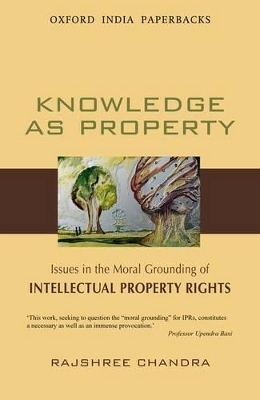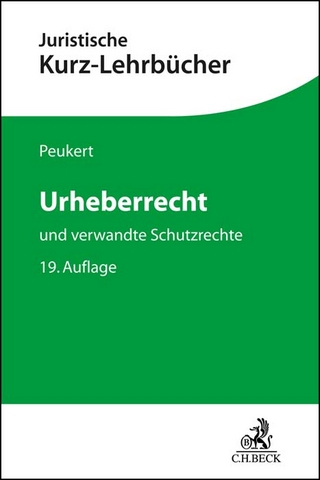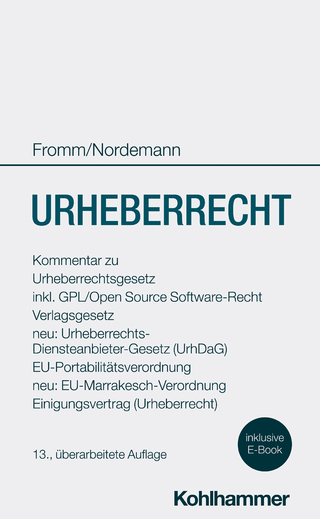
Knowledge as Property
OUP India (Verlag)
978-0-19-808911-7 (ISBN)
The book critically analyses the nature and scope of intellectual property rights using three different approaches: the philosophical, the empirical, and the theoretical. It studies the different justifications usually put forward in favour of protecting intellectual property rights, and shows how such rights come into conflict with other rights in society. The volume also discusses their benefits and drawbacks with the help of case studies. The author contends that rights can and should be 'structured in a lexical order of priority where rights which are linked to survival strategies ought to have enough legal teeth to trump rights which are more in the nature of economic entitlements, like intellectual property rights are'.
Rajshree Chandra is Associate Professor, Department of Political Science, Janki Devi Memorial College, University of Delhi.
INTRODUCTION ; SECTION I ; 1. : Contextualizing Intellectual Property Rights ; 2. : Property Rights: Principles of Legitimation ; 3. : Intellectual Property Rights and the Principle of Self-Ownership ; 4. : The Utility of Intellectual Property Rights ; 5. : The Politics of Knowledge ; SECTION II ; INTRODUCTION ; 6. : Intellectual Property Rights and the Right to Health: A Case Study of the Glivec Patent Claim in India ; 7. : Farmers' Rights in the Context of Proprietary Claims in Agriculture: A Case Study of McFarling v. Monsanto ; 8. : Indigenous Knowledge Rights Claims: Neem Patent Claims ; 9. : Issues in the Moral Grounding of Intellectual Property Rights ; BIBLIOGRAPHY ; INDEX
| Verlagsort | New Delhi |
|---|---|
| Sprache | englisch |
| Maße | 142 x 217 mm |
| Gewicht | 444 g |
| Themenwelt | Recht / Steuern ► EU / Internationales Recht |
| Recht / Steuern ► Wirtschaftsrecht ► Urheberrecht | |
| ISBN-10 | 0-19-808911-2 / 0198089112 |
| ISBN-13 | 978-0-19-808911-7 / 9780198089117 |
| Zustand | Neuware |
| Haben Sie eine Frage zum Produkt? |
aus dem Bereich


